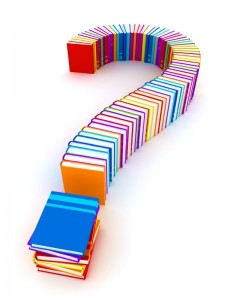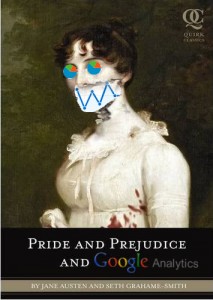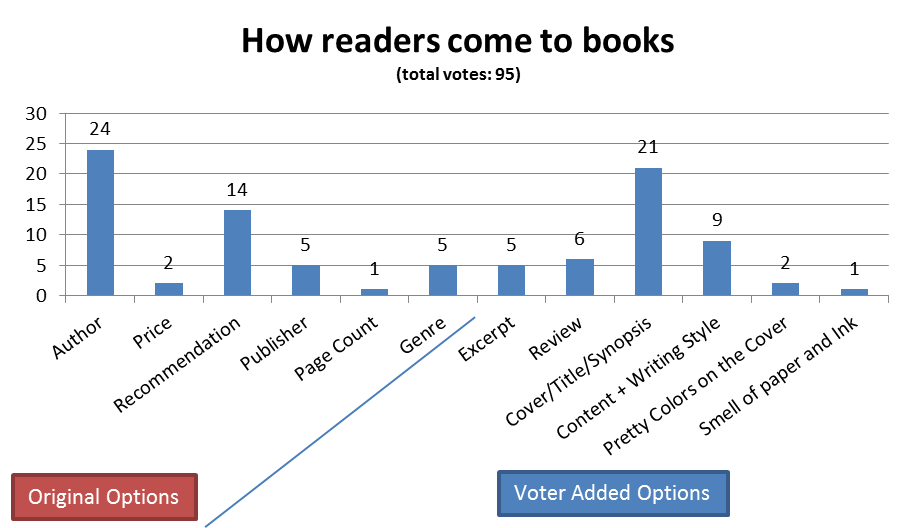 How many times did readers download your sample chapters? How many times did readers view your new book trailer? How many times did your website visitors click a button to buy one of your books? How many times did someone click a link to read one of your stories posted at another website? All of these items can be tracked using Event Tracking in Google Analytics.
What is Event Tracking? I’ll leave the details up to Google itself, but for our purposes think of Event Tracking as a second, deeper level of website analytics. Most of you are probably using your analytics program primarily to track how users interact with your website on a macro level (how many visits, most popular pages, how long visitors stay, etc). Event Tracking allows a micro level of tracking, where actual clicks and downloads on specific pages can be tracked.
Anywhere a user can click, Event Tracking can be used. Let’s look at an example that an author could definitely use.
How many times did readers download your sample chapters? How many times did readers view your new book trailer? How many times did your website visitors click a button to buy one of your books? How many times did someone click a link to read one of your stories posted at another website? All of these items can be tracked using Event Tracking in Google Analytics.
What is Event Tracking? I’ll leave the details up to Google itself, but for our purposes think of Event Tracking as a second, deeper level of website analytics. Most of you are probably using your analytics program primarily to track how users interact with your website on a macro level (how many visits, most popular pages, how long visitors stay, etc). Event Tracking allows a micro level of tracking, where actual clicks and downloads on specific pages can be tracked.
Anywhere a user can click, Event Tracking can be used. Let’s look at an example that an author could definitely use.
Category Archives Marketing & Promotion
 (Announcing a new post category: Search Engine Optimization for Authors. Well, it’s new in that I’ve finally given a name to it, but as you can see by clicking over to the category, there are a few past posts that fit within this category)
If you’ve read Christina Katz’s fantastic Get Known Before the Book Deal, or have been at all concerned about building that illusive “platform” so many industry types talk about then either 1) you are an author with a career somewhere between beginning and burgeoning, or 2) you’re interested in the publishing industry for slightly different, though I’m sure equally masochistic, reasons. Either way, one of the cornerstones of author presence in our Web 2.0 world (aren’t we at Web 2.1 yet, at least?) is the blog. Despite its cornerstone status, many authors aren’t sure where to begin. Or worse, they take the leap into bloggery without considering how to leverage such a forum for their own career goals (okay, time to put on the Purina checkerboard slacks, you sleazy salesman).
(Announcing a new post category: Search Engine Optimization for Authors. Well, it’s new in that I’ve finally given a name to it, but as you can see by clicking over to the category, there are a few past posts that fit within this category)
If you’ve read Christina Katz’s fantastic Get Known Before the Book Deal, or have been at all concerned about building that illusive “platform” so many industry types talk about then either 1) you are an author with a career somewhere between beginning and burgeoning, or 2) you’re interested in the publishing industry for slightly different, though I’m sure equally masochistic, reasons. Either way, one of the cornerstones of author presence in our Web 2.0 world (aren’t we at Web 2.1 yet, at least?) is the blog. Despite its cornerstone status, many authors aren’t sure where to begin. Or worse, they take the leap into bloggery without considering how to leverage such a forum for their own career goals (okay, time to put on the Purina checkerboard slacks, you sleazy salesman).
Nathan Pettigrew, one of the two minds behind the lit site Solarcide, asked me for an interview a few days ago. This guy knows how to ask questions, ones that not only evoke my own passion for the subject matter but also make it easy for me to answer in a way that is hopefully entertaining for readers. Head over to Solarcide now. Read the interview. Learn of my greatness. Here's a taste of Nathan's humbling intro: He’s one of literature’s most lethal rising stars and highly prolific with not one, but four new releases in 2011. His debut novel from earlier this year, Stranger Will (Otherworld Publications), established Caleb J. Ross as a true talent to be reckoned with. His writing can be described as stylistically beautiful while depicting some of the darkest and most disturbing worlds that fiction has to offer. Picking up on concurrent themes throughout his work pertaining…
The always wonderful Jane Friedman recently posted and responded to a question from a writer about the standardization of an author name and how search engines interpret (or cannot interpret) the various spellings of a single author’s name. I won’t post Jan O’Hara’s entire question here, but definitely check it out. A representative excerpt follows: Depending upon the blogging platform I’m using, it variously codes my name as OHara, O’Hara, O\Hara, or Hara...While some search engines or bookselling sites prompt the reader to find the correct spelling, this is not consistent. I cannot be guaranteed a reader who searches for “ohara” will be sent on to “O’Hara.” This is an important dilemma. In fact, it’s one I myself have wrestled with for years. The truth is, way back in 2000 or so when I first started seriously considering a career as an author, I went by Caleb Ross (sans the…
I’m a data nerd. I’m a spreadsheet and chart nerd. Therefore, I could have made this lede a bit shorter and simply said “I’m a nerd.” Recently, I conducted a very unscientific poll on Twitter and Facebook, asking a general group of readers how they decide what to read when choosing a book. While this is an admittedly small poll with a slight slant toward people I know, even if tangentially (they are connected to me via Facebook and Twitter in some way), I feel the findings are still valid, at least as part of a possible larger survey. If anyone has the resources to conduct a larger poll, contact me. I’d love to see the data. Here are the results: Observations: It has long been said that word of mouth is the best advertising for books, so it is slightly surprising to see “Recommendations” appear 3rd on the list.…
During the preorder phase of Stranger Will (around January(ish) of 2011) I decided to do something special, as I try to do with all of my book preorders. With Stranger Will, the temptation to integrate the preorder extras into the thematic content of the book itself was obvious and too persistent to ignore. A large part of the book deals with the trade of messenger pigeon messages between a woman named Mrs. Rose and to-be parents who are, shall we say, less than excited about their coming children. What comes of these transactions is an intricate, yet intentionally misdirected, sales pitch designed to encourage the to-be parents to abort their pregnancies. Heavy stuff, I know. I decided to use one of those exchanges presented in Stranger Will as a base for expanding the communication chain into a longer dialog between Mrs. Rose and a parent. What became of this is a 14-part,…
"Click-Clack" is a favorite of my stories. It has a rhythm and a focus that I am particularly proud of. So, it makes me all warm and bound to read Matthew C. Funk's review of the story at Spinetinger Magazine. Spinetingler, for whatever beautiful reason, has decided to review a handful of stories from the recent Warmed and Bound anthology, in which my story, along with 37 others, appear for your reading pleasure. Rather than blather on, I'll just post a few of Mr. Funk's words: Click-Clack by Caleb J. Ross is attuned to these mortal rhythms, and makes them sing seamlessly in a narrative that is as much a ballad as it is lyrical prose. This vignette is a song masquerading as short story. It achieves this with a brilliance as flawless as any modern masterpiece of music. Ross crafts wondrously illustrated personalities. Jack and Ernie are vivid as both symbols in a fable…


